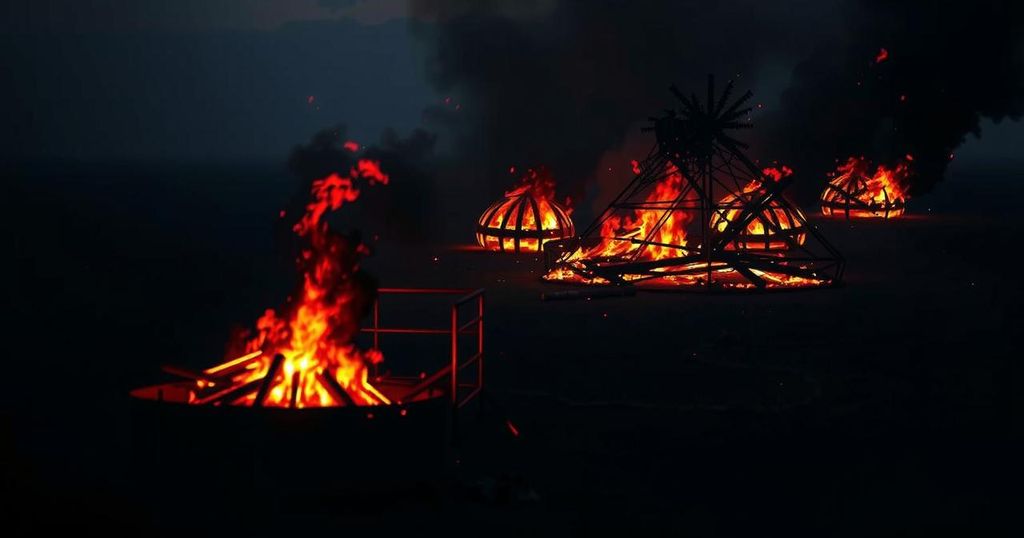A senior UN official reported that the ongoing war in Sudan and political instability in South Sudan impede progress on the final status of Abyei and border discussions. The situation has led to humanitarian crises, economic hardships, and increased tensions among communities, necessitating urgent international support for UNISFA’s operations and peacekeeping efforts in the region.
On Wednesday, senior United Nations official Martha Ama Akyaa Pobee briefed the Security Council regarding the ongoing conflict in Sudan and prevailing political uncertainties in South Sudan, which have significantly hindered progress in discussions concerning the final status of Abyei and related border issues. The Assistant Secretary-General for Africa underscored the detrimental impact of the war on security, economic stability, and humanitarian conditions in both nations, particularly affecting the Abyei region. Ama highlighted that as a result of the conflict, South Sudan has experienced disruptions in oil production and exports, exacerbating its economic challenges, while the influx of refugees from Sudan has intensified existing humanitarian crises in South Sudan. The situation has worsened, with inadequate access to essential resources, leading to dire implications for both local communities and incoming refugees. In Abyei, there is an alarming increase in small arms and heavy weaponry, along with reported incursions by Rapid Support Forces combatants, resulting in looting and further destabilization in the area. Furthermore, the ongoing tensions between the Twic Mayardit and Ngok Dinka communities are being exacerbated by the movement of armed groups. The recent climate-related adversities, including heavy rains and flooding, have displaced over 18,000 individuals in Abyei, disrupting crucial agricultural production and infrastructure. As the conflict between the Sudanese Armed Forces and the Rapid Support Forces enters its nineteenth month, it continues to pose significant destabilizing effects across the Horn of Africa and the Sahel. Ama asserted that the successful implementation of UN Security Council resolution 2046 (2012) cannot be achieved without addressing the ongoing conflicts in Sudan. In light of these challenges, UNISFA remains committed to monitoring the situation and facilitating conditions for renewed political dialogue while emphasizing the importance of re-engagement in the Joint Political and Security Mechanism and the Abyei Joint Oversight Committee. The mission’s critical efforts focus on promoting stability in Abyei and fostering reconciliation, which has, so far, prevented clashes between the Ngok Dinka and Misseriya communities. However, increasing incursions by South Sudanese security forces into Abyei are raising serious concerns over UNISFA’s operational capacity, necessitating formal calls for their withdrawal from the region. Additionally, the rising number of displaced persons from Sudan has strained local resources and increased criminal activity in Abyei, prompting urgent appeals for enhanced support for UNISFA’s policing capabilities as humanitarian needs continue to grow.
The ongoing conflicts in Sudan and South Sudan have significant ramifications for regional stability, particularly concerning the status of the Abyei region, which remains a point of contention between the two nations. The Abyei area, rich in resources and culturally significant for both communities, is governed by a convoluted series of agreements, including Security Council resolution 2046 (2012). The prolonged war in Sudan, now nearing two years, has resulted in substantial cross-border movements, complicating humanitarian efforts and impeding any meaningful political dialogue to resolve outstanding issues. The situation is further aggravated by internal challenges faced by South Sudan, such as resource scarcity and inter-communal tensions.
In conclusion, the ongoing conflict in Sudan, coupled with the instability in South Sudan, has critically stymied progress on vital political discussions regarding Abyei’s status and border disputes. The humanitarian crises are exacerbated by military tensions and climate-related challenges, which necessitate increased international support for stability and peacekeeping efforts in the region. UNISFA’s role becomes even more crucial as it facilitates dialogue and aids in community reconciliation while calling for immediate action to protect vulnerable populations and restore order in Abyei.
Original Source: www.radiotamazuj.org







